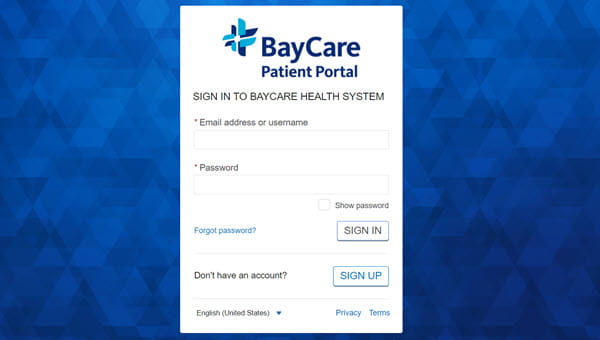Protect Yourself From the Flu
No one is thinking about flu right now, which is exactly why we should all be thinking about getting vaccinated for it. The flu vaccine helps your immune system by preparing it for this year’s flu strains. That’s why it’s so important to get vaccinated every year. The Centers for Disease Control and Prevention (CDC) recommends that everyone over the age of 6 months get a flu vaccine.
It’s Important to Get a Flu Vaccine
The CDC recommends a yearly flu vaccine as the first and most important step in protecting against flu viruses. Getting a flu vaccine this year is more important than ever. Flu vaccination can help reduce the severity of flu illnesses, doctor visits, hospitalizations and even deaths.
Who Should Get the Flu Vaccine?
The CDC recommends that everyone age 6 months and older should get a flu vaccine every season, with rare exceptions. Vaccination is particularly important for people who are at high risk of serious complications from influenza. There are flu shots approved for children as young as 6 months and flu shots approved for adults age 65 and older. Flu shots also are recommended and approved for pregnant women and people with certain chronic health conditions.
When to Get the Flu Vaccine?
It takes approximately two weeks after vaccination for antibodies to develop and provide protection against flu. So, you should get vaccinated in the early fall, before flu viruses begin spreading in your community. The CDC recommends that people get a flu vaccine by the end of October.
Where to Get Flu Vaccines?
The flu vaccine is available at a number of locations near you. Talk to your doctor or visit a local urgent care or pharmacy.
Frequently Asked Questions
-
Why is it so important for families to get the flu vaccine this year?
This year, the administration of the influenza vaccine has two really important implications. First, it’s always important to get the vaccine as many deaths are attributed to influenza each year. Despite having a vaccine for prevention and medications for treatment of the illness, about 200 children and 25,000 adults in the United States die from influenza each year.. Vaccines reduce the risk of hospitalization or death from the flu.
Second, as we go through the COVID-19 pandemic, it’s important more than ever to get vaccinated. Flu vaccines will not prevent COVID-19, but they will reduce the number of flu illnesses, and reserve health care resources for COVID-19 patients. We don’t have a lot of information of how the COVID-19 and influenza viruses will behave if you were infected with them at the same time. However, it’s not unusual to see patients with two strains of influenza or other infections at the same time. If someone gets infected with COVID-19 and influenza at the same time, it’s possible he/she could have more severe symptoms and even become critically ill. Already this year, we’ve experienced record high numbers of respiratory syncytial virus (RSV) infections in children after a significant decrease last year.
-
Can a flu vaccine give you flu?
No, flu vaccines can’t cause flu. Flu vaccines given with a needle are made with inactivated (dead) viruses or with only a single protein from the flu virus. The nasal spray vaccine contains live viruses that are attenuated (weakened) so that they won’t cause illness.
-
What types of flu vaccines are available?
There are many flu vaccine options to choose from. The most common is the flu shot which is given with a needle, usually in the arm. A nasal spray flu vaccine is also available for healthy, non-pregnant individuals ages 2 through 49. There’s also a high-dose flu vaccine option recommended for people over age 65. For those with egg allergies, there are egg-free flu vaccines available.
If you have questions about which vaccine is best for you, talk to your doctor or other health care professional.
-
Is it better to get sick with flu than to get a flu vaccine?
No. Flu can be a serious disease, particularly among young children, older adults and people with certain chronic health conditions, such as asthma, heart disease or diabetes. Any flu infection can carry a risk of serious complications, hospitalization or death, even among otherwise healthy children and adults.
-
Do I really need a flu vaccine every year?
Yes. Immune protection from vaccination declines over time, so an annual vaccination is needed to get the best protection against flu. Additionally, flu viruses are constantly changing, so the vaccine composition is reviewed each year and updated as needed based on which influenza viruses are making people sick.
-
Why do some people not feel well after getting a seasonal flu vaccine?
Some people report having mild side effects after flu vaccination. The most common are soreness, redness, tenderness or swelling where the shot was given. Reactions may also include low-grade fever, headache and muscle aches. If these occur, they usually begin soon after vaccination and last one to two days.
Side effects from the nasal spray flu vaccine may include runny nose, wheezing, headache, vomiting, muscle aches, fever, sore throat and cough. If these occur, they usually begin soon after vaccination and are mild and short-lived. Common reactions from the flu vaccines are considerably less severe than the symptoms caused by flu illness.
-
What about people who get a seasonal flu vaccine and still have flu symptoms?
There are several reasons why someone might get flu symptoms, even after they’ve been vaccinated against flu:
- People can become ill from other respiratory viruses such as rhinoviruses, which are associated with the common cold, cause symptoms similar to flu, and also spread and cause illness during flu season. The flu vaccine only protects against flu, not other illnesses.
- It’s possible to be exposed to flu viruses shortly before getting vaccinated or during the two-week period that it takes the body to develop immune protection after vaccination. This exposure may result in a person becoming ill with flu before protection from the vaccination takes effect.
- People may have been exposed to a flu virus that’s very different from the viruses the vaccine is designed to protect against. The ability of a flu vaccine to protect a person depends largely on the similarity or match between the viruses selected to make the vaccine and those spreading and causing illness. There are many different flu viruses that spread and cause illness.
- Flu vaccines’ effect may vary and some people who get vaccinated may still get sick. However, when that happens, data has shown vaccines can reduce the severity of illness in vaccinated people but still get sick.
-
Does getting a flu vaccination increase your risk of getting COVID-19?
There’s no evidence that getting a flu vaccination increases your risk of getting COVID-19.
-
How much does the flu vaccine cost?
BayCare Urgent Care accepts Florida Blue, BayCare/Cigna and Medicare for flu shot services. Patients can self-pay at the cost of $30 if your provider isn’t accepted.

Get Care Now
Are you experiencing flu symptoms or not feeling well? BayCare has a variety of options that help you find the right care at the right time, at the right place and at the right cost.

Visit Patient Portal
The BayCare patient portal, myBayCare, is your personal website for connecting to online medical records. Use the portal to track of your medial records, renew prescriptions and see test results.





